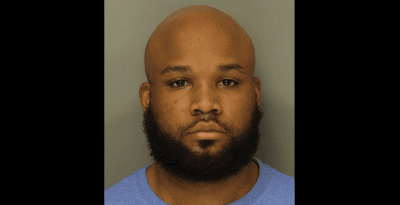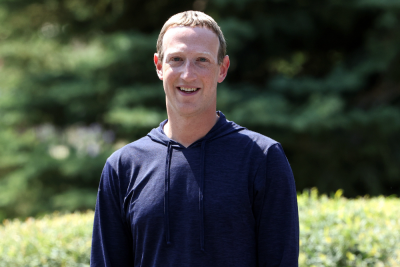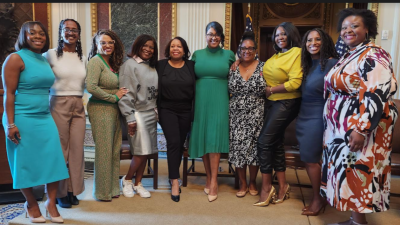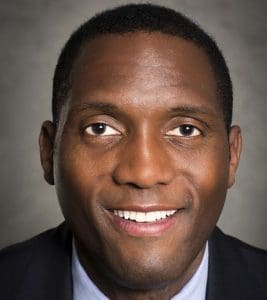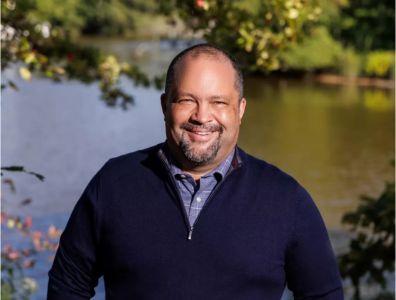Kim Cockerham won the title of Miss Columbia in 1993, which led her to the crown of Miss South Carolina. At 18 years old, she won the coveted title of Miss America 1994, making her only the second Miss South Carolina to win the national title.
Cockerham’s platform during her reign was her HERO Program for the homeless. Her year of service as Miss America helped generate public awareness about homelessness and brought a better public understanding of this significant social dilemma. Cockerham has made numerous television appearances and was recognized in People Magazine as one of the “Fifty Most Beautiful People in the World.” She has received multiple keys to cities and awards for her humanitarian efforts. In addition, she was also awarded The Order of the Palmetto, which is the highest honor to be given to any South Carolinian. She was also honored as an outstanding 40 over 40 recipient for Entrepreneurship.
After graduating from New York University with a BS in accounting, Cockerham pursued a career in public accounting with Ernst & Young LLP, one of the top accounting firms in the country. Following her time in public accounting, she became a successful owner-operator of a national franchise. Building upon her success as a franchisee, Cockerham started a financial management and consulting firm targeting small businesses. In that capacity, her company managed all financial aspects for client companies.
Today, Cockerham is president and CEO of Baker-Eubanks, a minority- and female-owned firm. Baker-Eubanks is a leader in conducting executive due diligence investigations to verify the backgrounds of a company’s most sensitive hires. She has also served on the board of directors for Miss South Carolina. She raised tens of thousands of dollars for the scholarship in this role with her annual golf tournament. She has also raised tens of thousands of dollars for the Miss America Foundation. She is chair of the Forever Miss America Scholarship selection committee.
She lives in New Jersey with her husband of almost 25 years and is the proud parent of two college-aged children, Camryn and Russell.
[Editor’s note: This is an extended transcription. Some errors may occur.]
Munson Steed: Welcome to a phenomenal CEO to CEO. Well, when you think of CEOs, you don’t always say queens, but for this particular CEO it is truly appropriate. She has clearly been an example of what it takes to be both a dynamic woman and a woman that excels in each and every moment of her life. I am so proud of what you have done. The one and only Kim Cockerham. Did I say your last name right, Kim? I want to make sure I said it. Cockerham.
Kim Cockerham: It’s Cockerham. You got it right.
MS: All right, Kim Cockerham. But I just want to thank you for coming on CEO to CEO. What’s it like when you finally put on your own CEO company hat? What was that day like, and why’d you decide to do it?
KC: Oh, boy, that’s a really long answer. I’ll try to make it as short as possible. So, I’ve had many, many stages in my life, and we can go back to that. But when I decided to become an entrepreneur quite honestly, that was really not what I set out to do. I came to work for Baker-Eubanks, I had been doing operations for small companies for several years. When I came back into the workforce after taking some time off to raise a family, and I came to Baker-Eubanks to work for a couple of years to get the company ready to sell.
The prior owner actually was out of Chicago and wanted to sell the company. And when I started working for the company and learned about the industry of background screening, met the clients and the employees, I really felt like there was an opportunity here for me. And so I basically got a group together and made the prior owner an offer and he took it. And so that’s really how I came to be CEO of Baker-Eubanks… two years ago, and I haven’t looked back
MS: A sister with superpowers. Describe your superpower.
KC: I would say my superpower — and I would think that other people would say this about me — is that I truly am a people person. And so, I get so much joy out of getting to know people, networking, learning what makes people tick. I have a genuine interest in other people, and so that really has helped me with growing my business. Networking is such a huge part of it, and it is a difficult skill for a lot of people, and I recognize that. And fortunately for me that is not something that I struggle with.
MS: You talk about it but if we had to ask a question beyond that for a young sister or brother looking, thinking about it and trying to increase their networking skill, why don’t you share three tips for people to kind of grow their networking skills?
KC: Well, I would say, the first thing is that you can’t be self-conscious. You’ve got to recognize that when you walk into a room, especially a room where you don’t know anybody, there are other people there that feel the exact same way. So, you gotta take that off the table. That would be the first thing I would say. The second thing I would say is that you want to go into a room, make contact with a couple of people, start up a conversation that you feel is comfortable for you, and then you can move into whatever it is that the event or the organization is about. So, whatever that commonality is, you could start with that.
And then I would say, the third piece of advice I would have is to work your contacts and your networks, and I don’t mean, work it in a way of always reaching out to people when you need something, but reaching out to people when you find something that you think would be of interest to them. So, for example, if I met you and you told me that you were really interested in learning more about South Carolina, which is my home. Next time I saw an article or something interesting about it, I would send it to you in an email and just say, “Hey, I was just thinking about you. I came across this article and here’s an interesting read.”
And so, I think those types of things when you can just make that natural human connection with someone, that is networking. It’s not always about what they can do for you, or what you can do for them, eventually if there is an opportunity to partner on something or for some type of business networking that will naturally come. But you have to foster the actual personal relationship first. What I have learned is that, I do business and other people do business with people that they like, people that they know, and thus people that they trust. And so you can’t really get any of that, If you don’t get down to the personal connection and who the human is.
MS: Thank you for that. When you think about the idea of three skills that individuals that you hire in the future. What are they? What should this group know that a CEO like you is looking for?
KC: So, I am always looking for somebody that’s adaptable. When you work in an environment where it’s an entrepreneurial spirit, things are changing constantly. We move very fast. If we find that our competitor is doing something, we’re gonna try to figure out how we can do it better and that might be something that we try to implement within a week. So, you have to be willing to be agile and move fast. I would also say for me, I’m always looking for someone who is willing to be pushed.
So if I hire you to do A, I want you to already start thinking about how now can I do B? Always trying to figure out how you can add value to the company and how you can grow, and be willing to stretch your skills. One of the things that I think, I, not to toot my own horn, but I’ve heard from my employees that one of the things I think I do well is because I’m interested in people. I can see sometimes something that they may not see in themselves. Just to give you just a quick example of that, when I came on to Baker Eubanks, here I am fairly new to the industry. I came to work with them, and now I own the company, and these are people, many of them, who’ve been at the company for 10-plus years.
And so, I really had to figure out how to navigate that I needed them. I needed them to be my ally, or else this business would not work. They had the expertise but what I saw was that in getting to know them, some of them were in roles that were too small for them, that they really just had been not challenged to do more and to stretch. And so two of my employees, I really found that they could do so much more, and I pushed them to do that with support, and they both stepped up to the challenge. Instead of me having to look for someone on the outside, I was able to grow the talent on the inside.
MS: When you think about that, what did you see? What were the indicators inside these individuals that said, hey? I’m ready to fly. I just haven’t been given the keys.
KC: Well, they didn’t say it, but I could just tell in the questions when I would ask questions about certain things, when I would talk about certain meetings and outcomes that I expected or was looking for. I felt that they both had real insight. That just from the history of the company and their knowledge of background screening, background screening is a very heavily regulated industry. And so to bring someone from the outside to, for example, one of them I elevated to be in my director of operations.
She was already doing that work. She just wasn’t really, I don’t think she was confident in it, because the prior CEO really kind of held everything very close, and I’m a big delegator. I’m willing to delegate. I like to delegate, and we’ll check in, and I’ll give feedback, and if it’s not working for you or for me. I’m totally completely fine with taking it back, and so I think they trusted that. And I haven’t really had an occurrence over the last two years, where they haven’t stepped up to the plate when things that really I would normally do, have been delegated to them.
MS: When you think about the mission statement of your company? Why is it important to have a mission statement? And why is it important for the entire organization to buy in?
KC: So, we don’t have an external mission statement. There’s so many things that we’ve been working on internally. We definitely have that on the list but our internal mission statement is really simple. It’s “listen first” and we abide by that in all things. So, we meet, we have several meetings a week. On Tuesday afternoon. We have a standing staff meeting, and that’s where everyone gets to update everyone on what’s going on with them, issues, concerns. What we need to be working on for the next week, and then I have a couple of meetings, one on one with certain key members, and in all of that, including our interactions with our clients, we always try to abide by the “listen first.”
Don’t bring a solution. Something that you think is what should happen or what should be done until you have had the opportunity to either, listen to your coworker, listen to your client. To really figure out what, this may be what I think we should do but have I really listened to hear what you’re articulating are the issues. ‘Cause usually change comes from issues. Most of us don’t make changes just because we want to make changes, we get comfortable, we’re willing to stay there. But when there are issues, we make those changes and in order, the only way to know what those issues are is to listen. So that’s really our mission statement. It’s always “listen first.”
MS: When you think about listening, technology plays the role. How are you thinking as a CEO, of leveraging technology to make you both efficient and effective in what you’re doing day to day? Given that checking backgrounds regulated, how you use technology will be tracked? Just leveraging technology.
KC: So, we do a lot of technology. When I purchased the company, the company was very manual. A lot of what was being done, was done, the way it had been done for many, many, many years. And so that’s kind of when I came in, that was my role, was to look at what we were doing, decide what processes were good, and we should keep doing them, decide what processes weren’t, and add process events that really needed to be there.
So, I worked with a couple of platform providers to really integrate a lot of technology in what we do and it makes everybody’s job so much easier. So just to give you an example, port records for example. They are housed at either the federal level, state level, county level, depending on what it is you’re checking. Well, a long time ago people would have to call up those county court records or have somebody go to them to actually get the records because they’re public.
But now we have the technology to be able to, from our own platform, go out to those records and access those records and databases online. If there’s ever an issue with what we get back, then, of course, we’ll do the manual, make a phone call and that type of thing. That has made the process, it takes a lot of human error out of it, so it’s made the process a lot smoother, a lot more efficient for our clients, and then a lot less aggravating for the candidate, that the job candidate who’s going through the background screen.
Another way that we use technology is for our marketing efforts. In 2024, I’ve launched a first marketing campaign which hasn’t rolled out yet. But it’s using a lot of automation and technology tools as opposed to manual. So I, we are embracing it. I’m not afraid of AI, because even in the background screening world quite a bit of AI is used, was used already, and just continuing to be so. I think it’s a great tool.
MS: Wait, you mentioned it — AI. What would you say if you were speaking at a CEO conference? And you were going to describe why you needed to lean into AI as the technology?
KC: Well, I would just say your competition is doing it. And so, we don’t do things just because other people are doing it. But there is, whatever industry you’re in. There is one pot of revenue. Am I getting it? Or is my competitor my competitor getting it? And I would argue that in almost every industry now, people are leveraging AI. They’re using it to work smarter, not harder. And so, even if you do something as simple as, if you have an assistant that he or she uses the AI tools to help you write some emails. I mean, that’s a simple thing to do.
If you think about over a year’s time. If you pay that person hourly. They’re ending up doing less work and so you’re saving money, or you’re able to put more work on them that they’re able to get done in that amount of time. So I think you should start with what you’re comfortable with, depending on your industry, and then just go from there. But everybody in every industry is leveraging AI, and I think you have to find a responsible way to do it as well.
MS: You’re in such a needed business. People trust what you do. But you’ve been on the stage, obviously, you’ve donned the crown Miss America! Congratulations! But for those young people who are out there in their images or in front of the world, what would you say to them about knowing that you’re always on stage, and your reputation will follow you?
KC: Well, like we mentioned earlier. I have two young people, college-age kids and so I explained to them, and they probably get tired of me saying it based on the industry that I’m in. I see very accomplished people. We do social meet, a lot of companies want social media checks. We do social media checks and there are things that people will post that can keep them from getting a job, can keep them from getting into college, can keep them from getting opportunities.
And so what I would say is, you don’t have to, I believe in free speech, and I believe in being who you are. But there’s a time and a place, and keep in mind who your audience is, and honestly, your audience, if you’re putting it online, your audience is everywhere. And so, I just would say to young people as they start their careers, I’m not saying censor yourself, but what I am saying is just know that whatever it is you’re putting out, the public will see it at some point. And so just be sure that you want, that is what you want to represent yourself.
MS: Well, thanks for that. So, reading, how do you stay up? How do you stay current? And how do you suggest future CEOs learn to scan the way you have now being two years into what you do?
KC: Well, you’re talking about reading for pleasure or for business or both?
MS: Both.
KC: OK, well, as far as for pleasure, I am in a couple of book clubs. I love to read. One of the most recent books we read was a biography and shout out to my good friend Michelle Miller. She’s in my book club. She’s a CBS news correspondent and [the book she wrote is] called Belonging. We read her book and we talked about it. And so that’s probably one of my favorites right now. Personally, business-wise, I’m reading a book called Traction. It’s called Traction, and it really just teaches entrepreneurs and smaller companies to set their processes up and set their company up as though you’re a large company, because the goal is always that you will grow. And so, you want to have those processes in place before you need them.
And that book has been amazing for me just from the very beginning, having things in place, having my people understand. This is how we’ll do things. And then, as we grow and we bring on more people, and we have more clients. Everybody is on the same page. And so, one of the examples I talked about a minute ago was the weekly staff meeting that, we have a set agenda we go through. We talk about the things that we didn’t get to the week before, people are held accountable for the things that they should have done by the time we meet again next week.
And when there are things that need to be talked about. We keep it to an hour. If there are things that need to be talked about, more one on one. Then it’s encouraged that those folks go and meet. This is more of a broad meeting, and then you can have your separate meetings, not gonna hold people hostage talking about things that don’t have anything to do with their job function. And that’s one of the I mean, it’s that’s a small thing, but that’s one of the things that you learn in that book, because when you operate as a large company, you just can’t have everybody in every meeting, doing everything.
MS: I love it. The last idea is, if you were giving a speech at Morehouse for graduation and you were gonna challenge the class that was getting ready to come out, what would you challenge them to do as CEOs of the future?
KC: Well, that’s a good question. My belief is that there probably will be, this year many, many CEOs sitting in that audience or future CEOs sitting in that audience. I guess the only advice I would probably have for them is to learn your craft. Don’t get your degree. get your job, make your money, and think that that’s all you need to do. You really need to be an expert and learn as much as you can in your craft. I think, no matter what it is. So say, for example, it’s finance. Don’t just go to work and do your finance job. You should be reading books about finance. You should be talking to people outside of it. You should be in groups that will foster and help you learn more about your craft.
You don’t have to be an expert, especially when you come right out of college, because most entry-level jobs. They’ll teach you what you need to know but to advance. You really want to be hungry for knowledge, and you need to show that and if you’re not hungry about the knowledge that you may not be in the right space. You know you may be doing something that is not meant for you, which is fine. You know it, you can pivot and learn to do something else, but I think that’s how you’ll excel to become the top person in any industry.
MS: Well, ladies and gentlemen, I want to thank Kim Cockerham for being a phenomenal CEO. Thank you so much for giving us insight into the possibilities that we all can receive. If we just lean in and do as you’ve done, to acquire a company, to lead a company, and to be an example of what a sister with superpowers can be for this world. Thank you so much.
KC: You’re welcome. Thanks for having me.

